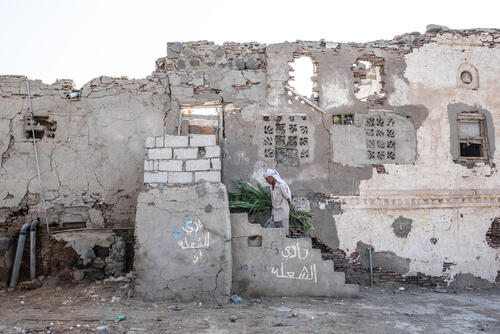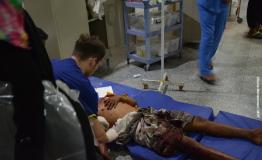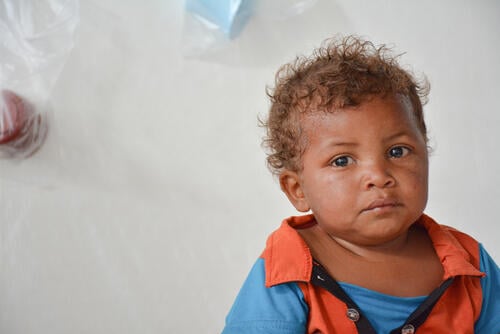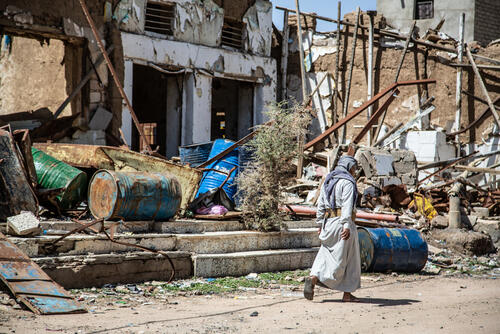Governments are meeting today in Geneva to pledge funds to address the humanitarian crisis in Yemen. Ironically, many of these donor governments are also involved in the war, which is both driving massive humanitarian needs and obstructing the delivery of humanitarian assistance, Médecins Sans Frontières (MSF) said today.
In Yemen, people’s access to basic services and aid is severely limited as warring parties continue to destroy the country’s infrastructure, including the health system, while their international supporters turn a blind eye. An MSF cholera treatment centre in Abs was targeted by a Saudi- and Emirati-Led Coalition (SELC) airstrike in June 2018, the fifth on an MSF facility in the country since March 2015. A subsequent report from the investigating team absurdly portrayed MSF as partly responsible for, rather than a victim of, the bombing.
The warring parties have created hurdles that prevent the fair distribution of humanitarian assistance according to humanitarian needs, with obstacles including restrictions on imports, visas, and movement permits. Meanwhile, active fighting and checkpoints continue to fragment the country, restricting the delivery of aid to many of the communities that need it most.
These barriers to access also prevent or hamper aid organisations from reaching some parts of the country to identify and evaluate the needs in communities across Yemen. Even when aid does reach people, it remains highly inadequate.
Donors, United Nations agencies and their implementing partners must reinforce medical humanitarian action and significantly increase their deployment across Yemen in order to reach more people and respond to some of the most critical needs.
Substantial gaps in primary healthcare support have left people exposed to recurring outbreaks of preventable diseases, such as measles, diphtheria and cholera.
The failure to protect civilians and provide adequate support to war-wounded patients are also alarming. MSF teams are witnessing residential and some urban areas becoming battlefields, with stray bullets, shrapnel, airstrikes, and landmines injuring a disproportionate number of children, women and elderly people. Those who reach our facilities seeking care often spend hours travelling on extremely unsafe roads across frontlines; we suspect many others never make it. Many of these patients passed through other facilities but were unable to get the care they needed due to lack of medical supplies or personnel.
Donor governments pledging funds must work to resolve the obstacles that are preventing aid from reaching the people who need it, and to ensure that the aid delivered responds to their actual needs. Ultimately, Yemen’s humanitarian crisis can only be resolved when donor governments end their involvement in the war and hold the warring parties accountable for their atrocious conduct endangering the lives of millions.






